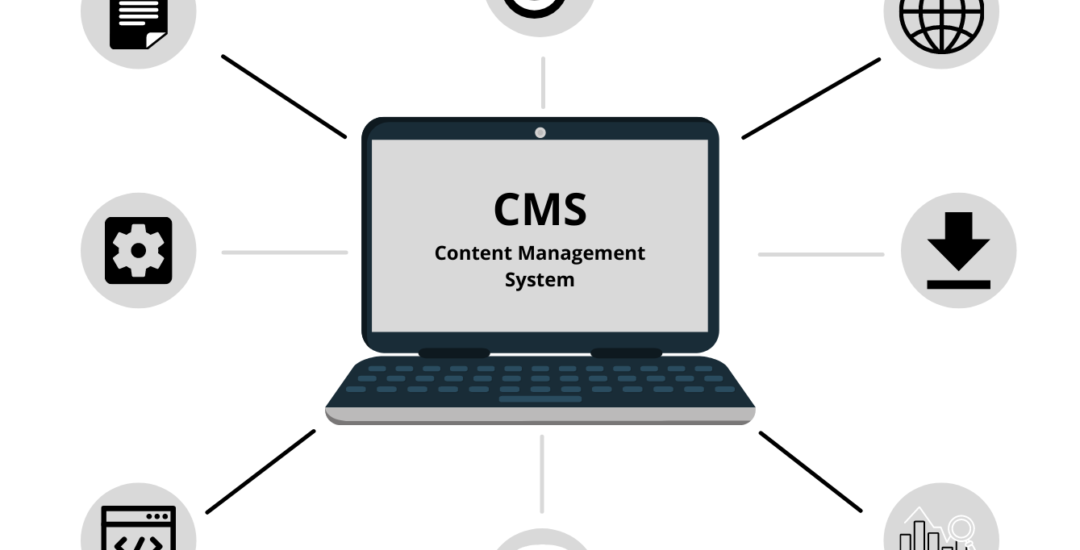A robust Content Management System (CMS) serves as the backbone for creating, managing, and publishing online content efficiently. With a plethora of options available, choosing the right CMS can be a daunting task for businesses and individuals alike. In this comprehensive guide, we’ll delve into the world of CMS platforms and explore key considerations to help you make an informed decision.
Understanding Content Management Systems (CMS)
A Content Management System is a software application that facilitates the creation, editing, organization, and publishing of digital content. CMS platforms empower users, regardless of technical expertise, to manage website content seamlessly without the need for extensive coding knowledge. From blogs and e-commerce sites to corporate portals and news outlets, CMS solutions cater to diverse needs and functionalities.
Why Choose the Right CMS Matters
Selecting the appropriate CMS is paramount as it directly influences your website’s functionality, scalability, security, and user experience. By investing time and resources upfront in evaluating CMS options, you can mitigate potential challenges and position your online presence for long-term success.
Key Considerations When Choosing a CMS
- Ease of Use: Look for an intuitive interface that simplifies content creation and management tasks. A user-friendly CMS reduces the learning curve for your team and streamlines workflow processes.
- Scalability: Consider your future growth objectives. Opt for a CMS that can accommodate your evolving needs, whether it involves expanding content volume, integrating additional features, or scaling up user access levels.
- Flexibility and Customization: Assess the level of customization offered by the CMS. Ensure that the platform supports tailored design elements, plugins, and extensions to align with your branding and functionality requirements.
- Security Features: Prioritize security measures such as regular updates, encryption protocols, and user permissions to safeguard your website against potential threats and vulnerabilities.
- SEO-Friendliness: Evaluate the CMS’s built-in SEO capabilities, including customizable URLs, meta tags, and sitemaps. A search engine-friendly CMS enhances your website’s visibility and rankings in online search results.
- Community Support and Documentation: Explore the availability of community forums, tutorials, and documentation resources provided by the CMS vendor. A robust support ecosystem ensures timely assistance and troubleshooting guidance for users.
Popular CMS Platforms: An Overview
- WordPress: Renowned for its user-friendly interface and extensive plugin ecosystem, WordPress powers a significant portion of the web, catering to diverse website needs from blogging to e-commerce.
- Drupal: Ideal for enterprise-level projects, Drupal offers advanced customization options and robust security features, making it a preferred choice for large-scale websites with complex requirements.
- Joomla: Known for its versatility and scalability, Joomla strikes a balance between user-friendliness and advanced functionality, making it suitable for medium to large-sized websites and online communities.
- Magento: Tailored specifically for e-commerce, Magento boasts powerful features for product management, inventory tracking, and payment integration, catering to businesses of all sizes seeking robust online storefronts.
Conclusion
In summary, selecting the right Content Management System is a pivotal decision that influences the success and sustainability of your online endeavors. By carefully evaluating factors such as usability, scalability, security, and customization, you can identify a CMS platform that aligns with your unique requirements and empowers you to realize your digital ambitions effectively.
Whether you’re a small business owner launching your first website or a seasoned developer managing multiple online projects, the right CMS serves as a cornerstone for achieving your online goals. Embrace the journey of exploration and discovery as you navigate the dynamic landscape of Content Management Systems, and let your vision guide you toward finding the perfect platform for your digital aspirations.






